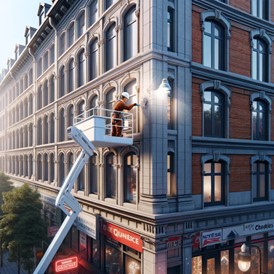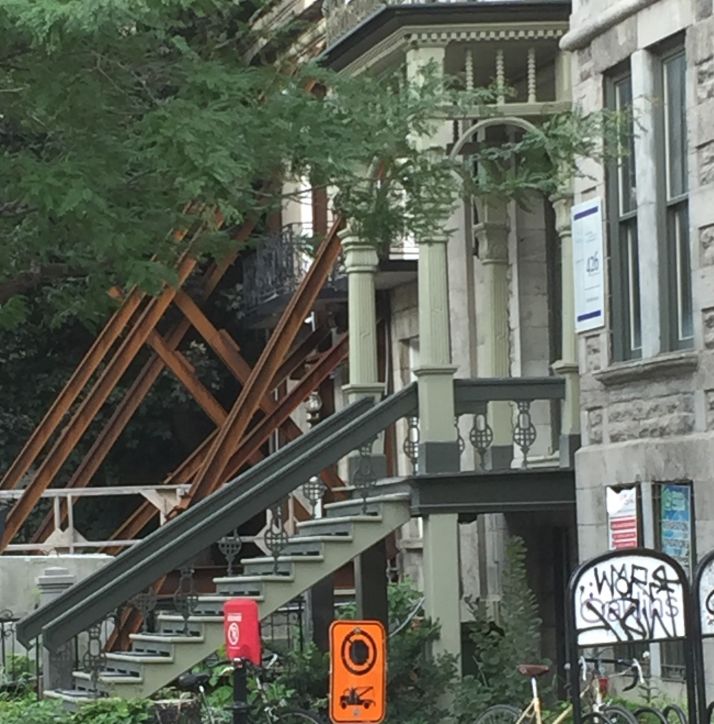 Law 122 was adopted in 2013, making facade inspection by an engineer or architect mandatory for certain types of buildings. Despite this, it is surprising to note that many building owners still seem to be unaware of these regulations, or even deliberately neglect them. Why is there still so much hesitation about this inspection which could prevent disasters? In this column, I will explain the importance of inspecting the facades of a building and the reasons given by certain co-owners to avoid having it carried out.
Law 122 was adopted in 2013, making facade inspection by an engineer or architect mandatory for certain types of buildings. Despite this, it is surprising to note that many building owners still seem to be unaware of these regulations, or even deliberately neglect them. Why is there still so much hesitation about this inspection which could prevent disasters? In this column, I will explain the importance of inspecting the facades of a building and the reasons given by certain co-owners to avoid having it carried out.
The importance of facade inspection
The inspection of facades, within the framework of Law 122, is important for three reasons: the safety of occupants, the prevention of dangerous conditions and compliance with current regulations.
Firstly, occupant safety constitutes the central pillar of this legal obligation. Indeed, this inspection aims to prevent tragic accidents which can result from the failure of facades, as unfortunately illustrated by several dramatic events in the past (the detachment of a concrete block kills a woman in Montreal, the collapse of a parking lot leaves one dead). By identifying and correcting potential deficiencies, it helps prevent structural elements from becoming dangers to human life, thus ensuring a safe environment for all.
Second, facade inspection helps prevent hazardous conditions from occurring. By detecting visible anomalies and determining the sources of risk, it makes it possible to intervene before these situations transform into real threats. By providing recommendations for appropriate corrective action, it provides the opportunity to eliminate hazards, thereby preserving the integrity of the building and the safety of users.
Finally, the inspection of facades is important since it is obligatory under Law 122 for any building with at least one facade of more than 4 floors above ground. Owners must respect the deadlines prescribed by law, with a first inspection to be carried out 10 years after the first shovel of earth, then every 5 years thereafter. An inspection register must be put in place and the absence of such a register may result in consequences, particularly if the RBQ comes to carry out checks.
Exploring obstacles to carrying out the inspection
Several reasons can explain why some unions choose not to inspect the facades of their building, despite its importance.
First of all, a lack of knowledge of the regulations in force may be one of these reasons. Some owners and managers are simply not informed of the legal obligation to carry out this inspection, or of the legal consequences to which they are exposed.
Then, the costs associated with the inspection and possible repairs can be a hindrance. Unfortunately, some see facade inspection as an unnecessary expense, which is the result of a very short-term vision.
Indeed, we should not underestimate the positive impact of such an approach. Many people who live in recent constructions have excessive confidence in the solidity of the construction, which can lead to reluctance to undertake an inspection of the facades. It is important to remember that regardless of the age of the building, the inspection can be beneficial, by ensuring the safety and durability of the building or simply by identifying components that have reached their useful life.
It also happens that the decision to obtain a facade inspection is perceived as falling within the competence of the general meeting of co-owners or the board of directors. From time to time, we hear things like “the co-owners voted against carrying out the inspection”. Any even remotely qualified administrator must know that co-owners do not have the power to vote for or against compliance with laws and regulations. Such a vote has no value, and if a serious incident were to occur, the directors could be held liable.
Conclusion
Facade inspection is not only an obligation for certain buildings, but it is necessary to ensure their safety and durability. Despite numerous tragic events that have occurred in recent years, some co-ownerships do not have this inspection carried out, due to ignorance or negligence. More than 10 years after the adoption of Law 122, there is still work to be done to raise awareness among co-owners of the importance of mandatory facade inspections.
Sean Beauchemin, ing. M.Sc
Director - Building Science, Associate
Depatie Beauchemin Consultants inc.
1 888 257 5322
[email protected]
https://www.depatiebeauchemin.com/


